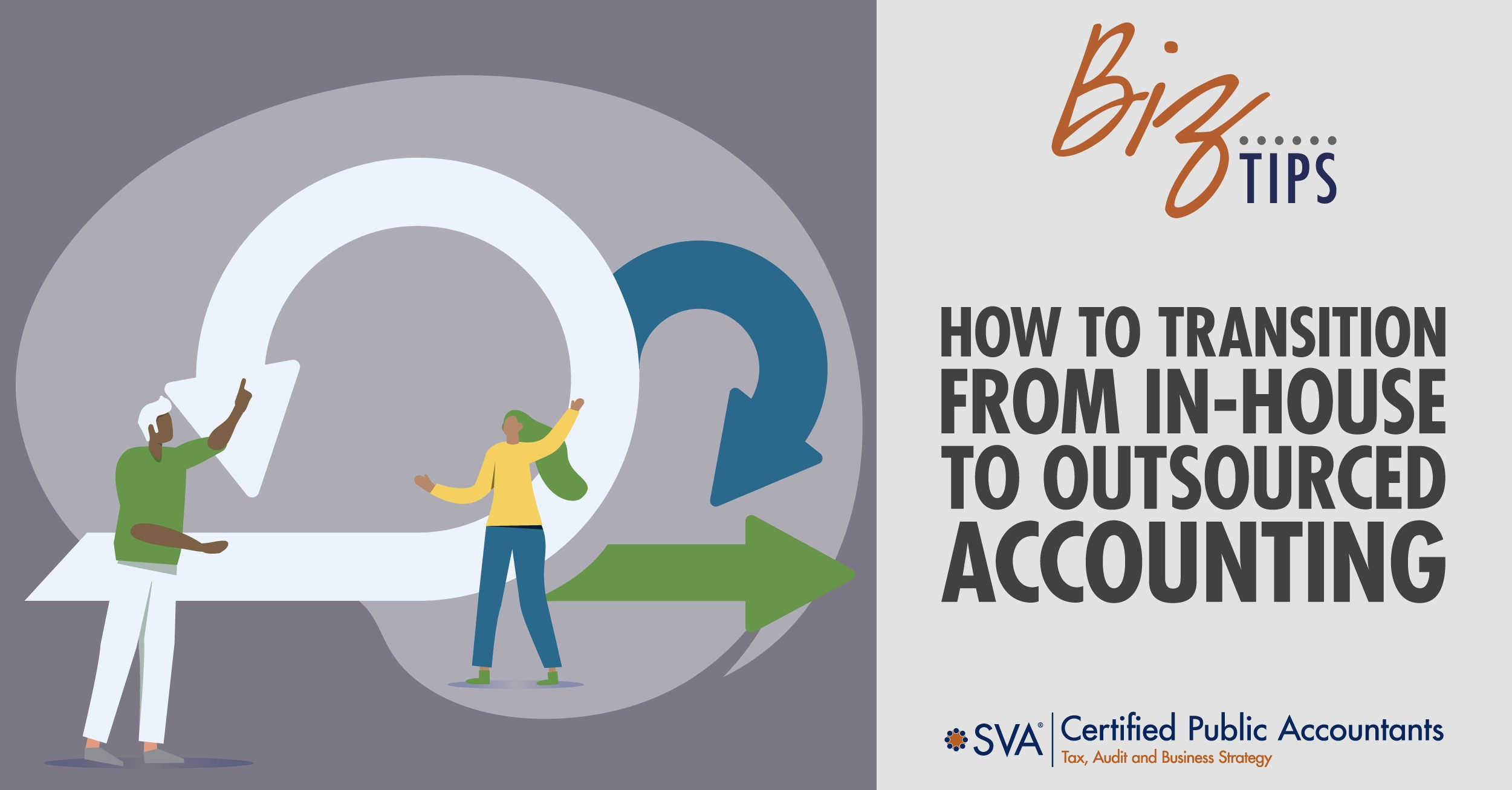| Highlights: |
- The article explains key reasons businesses transition from in-house to outsourced accounting, including cost control, expertise access, and freeing internal resources.
- It outlines practical steps for a smooth transition, such as evaluating current processes, selecting the right provider, and planning technology and workflow integration.
- Guidance emphasizes aligning expectations with clear communication, defining roles and responsibilities, and monitoring performance to maximize outsourced accounting benefits.
|
You’ve decided to shift your accounting practices from in-house to an outsourced accounting firm. What comes next? Transitioning from in-house to outsourced accounting is a significant change that should be conducted with all due diligence. Follow these eight steps for a smooth, successful transition.
8 Steps to Transition Your Business to Outsourced Accounting
1. Conduct a Needs Assessment
A needs assessment will help you understand what type of accounting services you need. Are you looking for a company to simply process payroll? Or is the goal to outsource the entire accounting department?
Consider all of your existing accounting functions, such as bookkeeping, financial reporting, payroll, and tax preparation, and what you hope to accomplish with outsourcing.
Do you want to reduce costs, enhance accuracy, streamline processes, or gain access to specialized knowledge? Establishing clear objectives will guide your decision-making process.
2. Select an Outsourced Accounting Firm
Once you have determined what you need, it is time to select an outsourcing provider. Look for a provider with experience in your industry and a track record of delivering high-quality services.
It’s also important to consider a potential provider’s security measures and pricing. Request proposals and references to help you make an informed decision.
3. Negotiate Contract Terms
The next step is to draw up a contract. Any contract should include specifics about what accounting services will be provided, fees and payment terms, data security measures, and termination clauses.
4. Create a Transition Plan
A detailed transition plan is crucial for the process to go as smoothly as possible. Collaborate with your outsourcing provider to define roles, responsibilities, timelines, and key deliverables for both your internal team and the outsourcing provider.
Thought should also be given to how the changes will be communicated to staff and stakeholders. Clear expectations will help ensure a seamless handover.
(Download Video Transcript)
5. Transfer Data
Your outsourced accounting provider will need to acquire your financial data. All data must be shared via secure data-sharing processes or transferred to a new accounting software system.
It’s important to make sure your provider is following all data security and privacy rules and regulations during the sharing or transferring of data.
6. Training and Support
Your staff will likely need training and support to adjust to the new processes, whether that is learning new software or understanding how to communicate with the outsourcing provider. Provide training on your specific accounting systems, software, and internal policies to your outsourced accounting partner.
During this time, it may also be a good idea to document all processes and procedures. This can serve as a reference for you and your provider and be a valuable resource if new team members need to be on-boarded in the future.
7. Communicate the Change Internally
It’s important to communicate the change to outsourced accounting to all affected parties. This includes staff who may be impacted by the change, as well as stakeholders who need to be aware of the new arrangements.
When communicating the change, address any concerns and explain the benefits and opportunities of outsourced accounting. Be sure to also explain the roles and responsibilities of team members during the transition and going forward.
8. Monitor and Adjust
Once the transition is complete, closely monitor the outsourcing provider’s performance and be prepared to adjust processes as necessary to ensure smooth operations and high-quality service.
Regular meetings to review progress and address any concerns and issues will help everything run smoothly.
Moving to outsourced accounting can be daunting, but following these steps can help ensure a successful transition. Contact an SVA professional to learn more about how we can help with your outsourced accounting needs.

© 2023 SVA Certified Public Accountants

